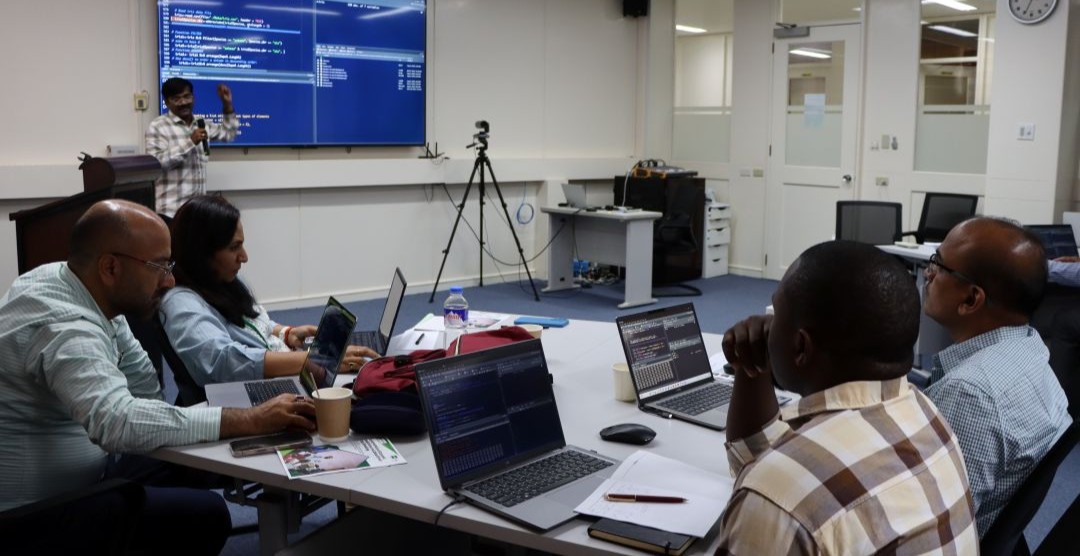Course Overview
The course Fundamentals of Genomic Predictions and Data-Driven Crop Breeding offers a thorough exploration of the latest techniques in modern plant breeding. Participants will delve into learning the R language and understanding the basics of quantitative genetics, statistical genomics, and fundamentals of predictive modeling and breeding. The participants will acquire vital knowledge of mixed and advanced models in predictive breeding and their practical applications, giving participants a strong foundation in predictive breeding. The participants will learn and understand when and how to apply genomic selection in breeding programs. The course will also cover G x E interactions in plant breeding and dissecting G x E interactions using predictive breeding and relationship matrices. Attendees will learn about designing training and testing sets, incorporating sparse testing, and more. Additionally, the course covers new concepts like the Usefulness Criterion and Optimal Parental Contributions, aimed at enhancing the effectiveness and efficiency of crossing strategies.
The course features theory and a hands-on approach, allowing participants to work with real-world datasets to implement genomic selection in breeding programs, analyze G x E interactions, and design crossing strategies. This practical experience ensures that participants not only understand theoretical concepts but also develop the essential skills needed to apply genomic selection in their professional endeavors.
Designed for individuals with a basic understanding of crop breeding and genetics, the course is accessible to professionals with varied statistical and R programming expertise, accommodating a diverse audience in the field.
Course Objectives
This course integrates quantitative genetics and statistical genomics with modern breeding approaches, focusing on genomic selection and data-driven decision-making in crop breeding. It enhances understanding of quantitative genetics, statistical models for genomic predictions, and genomic selection implementation in breeding programs. The course covers advanced techniques for parent selection and crossing block design using genotypic and phenotypic datasets. Participants will gain practical skills to apply these concepts in real-world crop improvement scenarios.
By the end of the training course, the participants should be able to:
- Learn and become familiar with the R language
- Gain the basic and advanced knowledge of quantitative genetic and statistical genomics relevant to predictive breeding
- Understand the different relationship matrices and their use in genomic predictions/selections
- Understand the linear and mixed models to perform phenotypic data analysis and genomic predictions
- Understand and apply the basic and advanced statistical models to perform the genomic selections
- Understand the fundamentals of genomic selection (3W’s of Genomic selection: Why, When, and Where to apply it in the breeding program)
- Understand the G x E interactions and design sparse testing design in dissecting G x E interactions and
- Understand the Usefulness criterion and Optimal Parental Contributions to design the crossing block and predict the performance of cross combinations.
Target Audience
Plant breeders, geneticists, graduate students, postdoctoral fellows, research scholars, and assistants involved in crop breeding programs. This course is mainly intended for those keen to learn the modern data-driven breeding approaches and how to leverage the data sets to perform genomic selection and implement them in breeding programs.
Key Modules:
- Module 1: Introduction and Learning R and R Markdown
- Module 2: Fundamentals of Quantitative Genetics and Predictive Modeling
- Module 3: G x E Interactions Dissections in Predictive Breeding
- Module 4:Practical Implementation of Genomic Selection in Plant Breeding
- Module 5: Breeding and Crossing Scheme Optimizations
Learning Modality
The course will be delivered face-to-face with a mixed modality of synchronous and asynchronous discussions involving theoretical concepts, practical and hands-on exercises, and self-paced e-learning activities.
Course History
This course was initially implemented in 2024 at the International Rice Research Institute (IRRI) Headquarters in Los Baños, Laguna, bringing together around 30 diverse participants from across Asia and Africa to learn about genomic selection and other data-driven strategies in crop breeding (read more here). In the same year, a second implementation was conducted in partnership with the Indian Council of Agricultural Research – Indian Institute of Rice Research (ICAR-IIRR) in Hyderabad, India. This training gathered more than 39 participants from over 20 research institutes, including research scholars, senior research fellows, young professionals, scientists, senior scientists, and assistant professors. The program was highly praised and recognized as one of the most successful courses to date (read more here). Last 2025, the course was implemented twice. In August 2025, the course was implemented in IRRI HQ in the Philippines attended by 15 participants coming from five countries. With high demands for the course to be implemented in India, the course was also implemented in collaboration with Indian Council of Agricultural Research – Indian Institute of Rice Research (ICAR-IIRR). 37 plant breeders, geneticists, research scholars, and early-career scientists from across India to strengthen their expertise in cutting-edge genomic tools and data-driven approaches essential for modern rice improvement (read more here).




